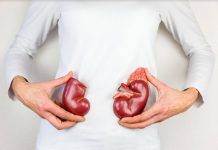Endometrial cancer is the type that affects the uterine lining. It is the most common type of cancer affecting the female reproductive system and makes up not less than 5% of cancers found in females.
Endometrial cancer has been shown to be influenced greatly by hormonal factors, particularly the female hormones estrogen and progesterone. Low levels of progesterone have particularly been put forward as a possible high risk factor.
It has been hypothesized that alcohol consumption increases your chances of suffering from endometrial cancer. This is due to the fact that alcohol consumption is associated with high estrogen levels and low levels of progesterone, mostly in postmenopausal women.
Various studies have been carried out to show this, but none has significantly shown that the hypothesis is in itself true even after taking into consideration age of the subjects as well as their weight and smoking habits. Currently, there is the conclusion that the risk of endometrial cancer is unlikely to be increased by low rates of alcohol intake such as one drink a day.
Findings from scientific study have also suggested that obese women (obesity effects) are less likely to acquire endometrial cancer due to alcohol intake than their co-temporal lean women.
This is because their levels of estrogen are already quite high and therefore alcohol effect becomes masked whereas with lean women, there will be a significant influence from the small increase in hormonal levels brought about by consumption of high quantities of alcohol.
It must be noted that although these findings require further research to show how exactly alcohol consumption is linked to endometrial cancer; alcohol has been shown to be associated to liver abnormalities and breast cancer. This is common among postmenopausal women.
Lifestyle of individuals also affects the extent to which alcohol will be a risk factor in getting endometrial cancer. This therefore means far more research is needed, making use of a larger sample size as well as including aspects of lifestyle such as exercise, diet, genetic background. Drinking habits also need to be included and this will help to come up with conclusive recommendations about alcohol drinking and its association to endometrial cancer.
There is also the aspect of exogenous estrogen usage that can also affect results of the scientific study, therefore it needs to be considered as well. The most current studies concluded that for post-menopausal women, the consumption of more than two alcoholic beverages a day can double your risk factor of contracting endometrial cancer than those who drink only one a day or not at all.








